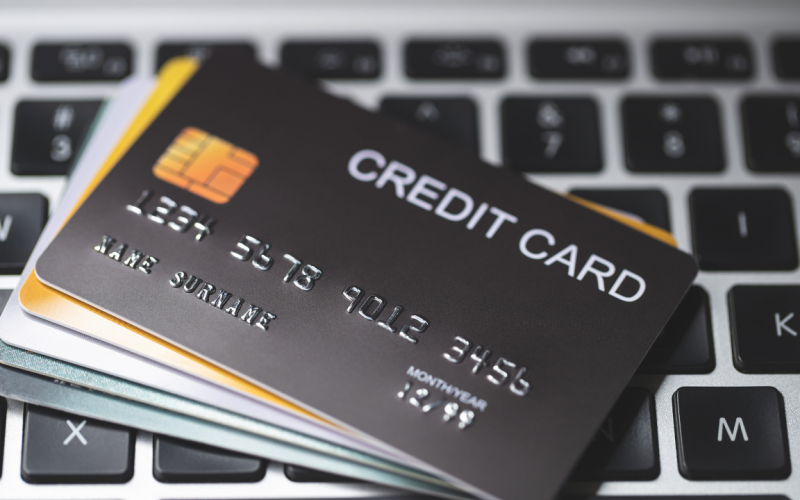The feeling of owning a credit card, swiping it for that concert ticket or new book you’ve been wanting to buy – it’s priceless! Being a student can be tough sometimes and a credit card can seem like freedom, but is there a thing as a student credit card? Can a student get a credit card?
In this day and age, where financial independence is becoming increasingly important for young individuals, having access to credit can be a game-changer.
Yes, a student may get a credit card, and in this article, we will discuss the requirements for getting a credit card for a student.
Table of contents
- Can a Student Get a Credit Card?
- What are the Tips for getting a credit card as a Student
- What are the Student Credit Card Eligibility Criteria?
- How to Apply for a Student Credit Card
- What are the available Credit cards for students?
- Discover it® Student Cash Back
- Capital One® Journey® Student Rewards :
- Bank of America® Travel Rewards Credit Card for Students :
- Citi Rewards+℠ Student Card :
- Wells Fargo Cash Back College Card :
- Deserve EDU Mastercard for Students :
- Petal® 2 “Cash Back, No Fees” Visa® Credit Card :
- FAQs: Can a Student Get a Credit Card?
- Conclusion
- References
- Recommendations
Can a Student Get a Credit Card?
Many students often wonder if they can get a credit card, and the answer is yes. While it may seem surprising that banks are willing to provide credit cards to individuals with limited income and no established credit history, options are specifically designed for students.
These student credit cards offer various benefits, such as cashback rewards on everyday purchases or travel perks catering to young adults’ needs. This can help students who are looking to apply to organizations that assist students with no or low income.
Obtaining a student credit card can be an excellent way for students to start building their credit history.
By using the card responsibly and making timely payments, students can establish a positive credit score early on, proving invaluable in future financial endeavors. Additionally, having a credit card can provide security during emergencies or unexpected expenses when funds from other sources might not be immediately accessible.
It’s important, however, for students to understand that obtaining a credit card comes with responsibilities. Learning how interest rates work and budgeting effectively is essential to avoid falling into debt early on in life.
Credit cards can be valuable tools if used wisely but quickly become problematic if mismanaged and could affect their credit score. Therefore, students need to educate themselves about personal finance and make responsible decisions regarding their spending habits before entering into this financial commitment.
Read Also: What are Credit Hours in College? How Does it Work?
What are the Tips for getting a credit card as a Student
Getting a credit card as a student in the United States or another country can be valuable in building your credit history and managing your finances. However, it can also be challenging due to limited credit history and the fact that you’re not a permanent resident. Here are some tips to help you get a credit card as an international student:
- Understand the Basics of Credit: Understanding how credit works before applying for a credit card is important. Learn about credit scores, reports, interest rates, and responsible credit card use.
- Research Card Options: Look for credit cards specifically designed for international students or those with limited credit history. Many major banks and credit card companies offer such cards. Some popular options include Discover it® Student Cash Back, Capital One® Journey® Student Rewards, and Bank of America® Travel Rewards Credit Card for Students.
- On-Campus Banks and Credit Unions: Check with banks or credit unions on your campus. They might be more willing to work with international students and offer tailored credit card options.
- Apply for a Secured Credit Card: If you cannot qualify for an unsecured credit card, consider applying for a secured credit card. With a secured card, you must provide a security deposit as your credit limit. Secured cards can help you build credit over time.
- Apply Online or In-Person: You can typically apply for a credit card online or in person at a bank branch. Applying in person might allow you to speak with a representative who can better explain the application process.
- Provide Necessary Documentation: Be prepared to provide identification, proof of income, and other necessary documents as the credit card issuer requires. Make sure all your documentation is in order before applying.
Read Also: How To Make Effective Flashcards That Actually Work as a Student
What are the Student Credit Card Eligibility Criteria?
To qualify for a credit card as a student, you typically need to meet the following criteria:
- Age Requirement: You must be 18 to independently apply for a credit card.
- Income or Co-signer: Most students lack a steady income, making it challenging to qualify for a credit card. In such cases, having a co-signer, like a parent or guardian, with a good credit history can increase your chances of approval. Or maybe, does a scholarship count as income for students?
- Credit History: Some credit card issuers offer cards designed specifically for students with limited or no credit history. These cards often have lower credit limits and may be easier to qualify for.
- Student Status: You’ll need to provide proof of your enrollment in an educational institution, such as a university or college.
- Responsible Financial Behavior: Demonstrating responsible financial behavior, such as paying bills on time and managing your finances wisely, can improve your creditworthiness.
- Credit Card Options: Research different credit card options for students. Some cards offer rewards, while others focus on building credit.
How to Apply for a Student Credit Card
Now that you know the basic requirements, let’s discuss the steps to apply for a student credit card:
- Research Card Options: Explore the various credit cards available for students. Look for cards with low annual fees and competitive interest rates.
- Gather Required Documents: Prepare the necessary documents, including proof of income or a co-signer’s information, your student ID, and your social security number.
- Online Application: Most credit card applications can be completed online. Visit the credit card issuer’s website and fill out the application form.
- Wait for Approval: After submitting your application, the issuer will review your information. You’ll receive approval within a few weeks if you meet the requirements.
- Receive Your Card: Once approved, you’ll receive your credit card in the mail. Activate it according to the issuer’s instructions.
- Build Credit Responsibly: Start using your card responsibly by making small purchases and paying your bills on time. This will help you establish a positive credit history.
Also, see: Student Finance Attendance Requirements: Does Attendance Affect Student Finance?
What are the available Credit cards for students?
Several credit cards are designed specifically for students, offering benefits such as lower credit requirements, rewards, and tools to help build credit responsibly. Here are some available credit cards for students in the United States:
Discover it® Student Cash Back
This card offers 5% cash back on rotating categories, up to the quarterly maximum, and 1% on all other purchases. It also has no annual fee.
- Offers cash back rewards on purchases, including rotating quarterly categories.
- Provides a Good Grade Reward for maintaining a GPA of 3.0 or higher.
- No annual fee.
- Introductory 0% APR on purchases for the first six months.
Capital One® Journey® Student Rewards:
- Earns 1% cash back on all purchases, with a bonus for on-time payments.
- No foreign transaction fees.
- No annual fee.
- Access to a higher credit line after making the first five monthly payments on time.
Bank of America® Travel Rewards Credit Card for Students:
This card offers 3% cash back on gas and dining, 2% cash back at grocery stores, and 1% cash back on all other purchases. It also has a $0 annual fee.
- Earns points for every purchase, which can be redeemed for travel rewards.
- No annual fee.
- No foreign transaction fees.
- Offers a signup bonus.
Citi Rewards+℠ Student Card:
- Earns ThankYou Points on purchases, with a unique feature that rounds up points on every purchase to the nearest 10.
- No annual fee.
- Introductory 0% APR on purchases for the first seven months.
Wells Fargo Cash Back College Card:
- Earns cash rewards on everyday purchases.
- Offers a rewards boost for redeeming rewards into a Wells Fargo account.
- No annual fee.
- Cell phone protection when you pay your cell phone bill with the card.
Deserve EDU Mastercard for Students:
- No credit history or Social Security number is required.
- Earns 1% cash back on all purchases.
- No annual fee.
- Offers rental car insurance and extended warranty protection.
Also, read: When Are You Allowed to Apply for Student Finance in UK?
Petal® 2 “Cash Back, No Fees” Visa® Credit Card:
- No credit history is required.
- Earns up to 1.5% cash back on eligible purchases.
- No annual fee.
- Provides a pathway to a higher credit limit based on responsible use.
Here are some additional factors to consider when choosing a student credit card:
- Interest rate: The interest rate is the percentage of the balance you owe you will pay in interest each year. A lower interest rate is better.
- Annual fee: Some credit cards have an annual fee. This is a yearly charge that you have to pay to keep the card.
- Rewards: Many credit cards offer rewards, such as cashback, points, or miles. Choose a card that offers rewards that you will use.
- Credit limit: The limit is the maximum amount of money you can charge on the card. A higher credit limit is better, but it’s important to ensure you can pay off the balance each month.
It’s also a good idea to read the credit card terms and conditions carefully before applying. This will help you understand the fees, interest rates, and other charges that may apply.
Read Also: What To Do When Student Loan Account Is Closed Due To Transfer
FAQs: Can a Student Get a Credit Card?
Yes, many credit card issuers offer student credit cards tailored to the needs of students. These cards often have lower credit limits and may provide rewards or cashback benefits.
International students can apply for credit cards in the U.S. However, they may face additional requirements, such as a Social Security Number or Individual Taxpayer Identification Number (ITIN).
Yes, applying for a credit card may temporarily impact your credit score due to a hard inquiry. However, responsible credit card usage can help you build a positive credit history over time.
If your application is denied, consider applying for a secured credit card or becoming an authorized user on someone else’s card to build credit gradually.
While credit cards can be a valuable financial tool, they also come with the risk of accumulating debt if not used responsibly. It’s essential to budget and make timely payments to avoid financial pitfalls.
Some student credit cards offer travel benefits, but checking the terms and conditions to ensure they align with your travel needs is essential. Also, notify your card issuer about travel plans to avoid any issues abroad.
Conclusion
Students can get a credit card, but it’s essential to meet specific eligibility requirements and use the card responsibly. Students can confidently embark on their financial journey by following the outlined steps and understanding the responsibilities involved. Responsible financial behavior and credit management are key to building a strong credit history for a secure financial future.
References
- Bankrate.com – do international students get credit cards?
- Nerdwallet.com – can students get a credit card?
- Nerdwallet.com – credit card for college students
Recommendations
- Can You Get a Masters Maintenance Student Loan For a Master’s Degree?
- What Student Loan Plan Am I On? A Guide For Students
- What Happens if You Don’t Pay Your Student Loans Back?
- When Do You Do Your GCSEs? Everything You Need to Know
- What is the American Equivalent for GCSE and A level?
- Why Many Fail GCSE Exams
- Are GCSEs (Actually) Hard? Top Tips for Passing the Most Difficult GCSE Exam Papers






